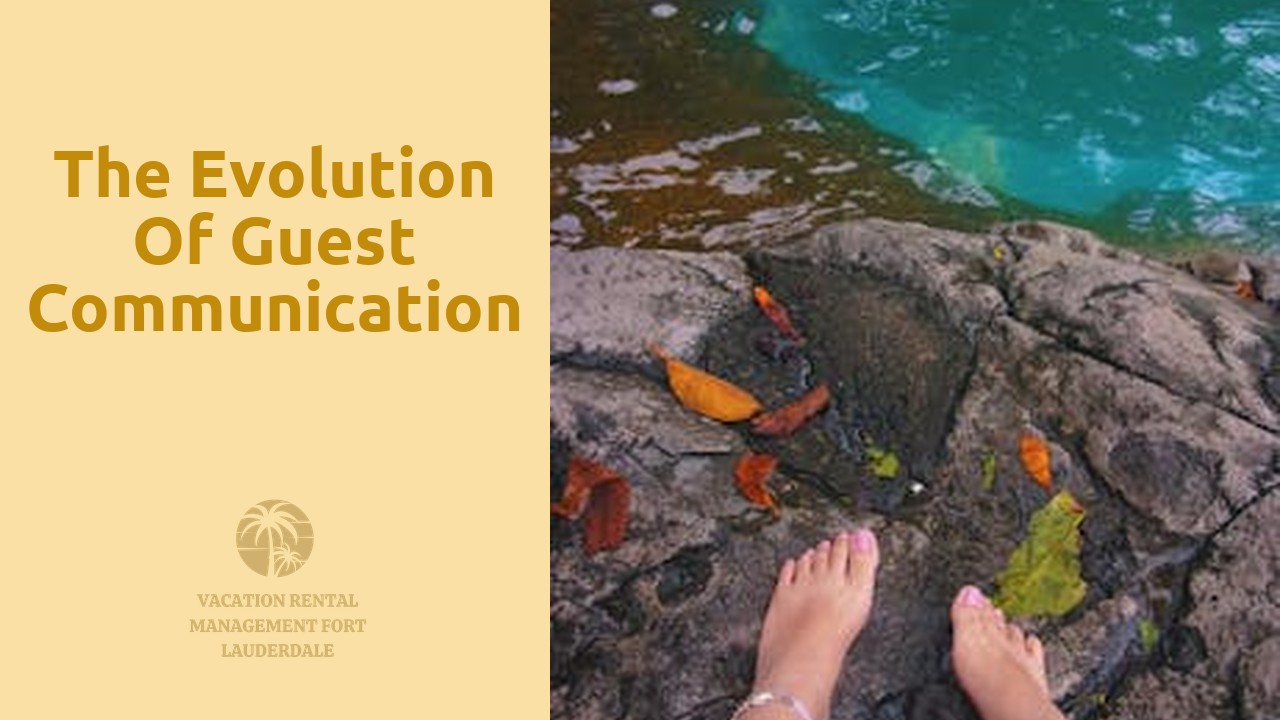
The Evolution of Guest Communication
Table Of Contents
Emergence of social media
Social media has revolutionized the way businesses engage with their guests. Platforms like Facebook, Instagram, and Twitter have provided powerful channels to communicate with customers in real-time. By leveraging these platforms, hotels and resorts can share updates, promotions, and personalized messages to create a more interactive and engaging experience for their guests.
Guests now expect quick responses to their queries and feedback through social media channels. Hotels need to monitor their social media accounts regularly, addressing concerns promptly and showcasing their dedication to customer satisfaction. Furthermore, social media allows for the sharing of user-generated content, enabling guests to share their experiences and recommendations, ultimately building a sense of community and trust around the brand.
Interactive guest engagement
In the realm of hospitality, interactive guest engagement has become a pivotal aspect of the overall guest experience. It allows for real-time communication and personalized interactions, fostering a sense of connection and satisfaction for visitors. By enabling guests to actively engage with the establishment through various platforms, hospitality providers can gather valuable feedback, address concerns promptly, and tailor services to meet individual preferences.
Social media platforms often serve as a vibrant arena for interactive guest engagement, offering a space for guests to share their experiences, ask questions, and receive quick responses. This form of engagement not only builds a sense of community among guests but also enhances the visibility and reputation of the establishment. Furthermore, interactive engagement can extend beyond social media to include interactive maps, virtual tours, and live chats on websites, creating multifaceted touchpoints that enrich the overall guest journey.
Utilization of chatbots
Chatbots have revolutionized the way businesses interact with their customers, providing instant responses and round-the-clock availability. These AI-powered tools offer a seamless and efficient communication channel for guests, addressing queries and providing assistance promptly. By utilizing chatbots, hotels and other hospitality establishments can enhance their customer service levels and create a more personalized experience for guests.
The utilization of chatbots not only streamlines guest communication but also helps in managing high volumes of inquiries simultaneously. Guests can receive instant responses to common questions, make reservations, and even receive personalized recommendations based on their preferences. This technology not only saves time for staff members but also ensures that guests have a positive and hassle-free interaction with the establishment, leading to improved customer satisfaction levels.
Automated customer interactions
Automated customer interactions have become a cornerstone of modern guest communication strategies. Through the use of advanced technologies such as chatbots and AI-powered systems, businesses can provide efficient and personalized responses to guest inquiries and concerns. These automated interactions not only enhance the overall guest experience but also free up human resources to focus on more nuanced aspects of customer service.
One key advantage of automated customer interactions is the ability to provide 24/7 support to guests. By implementing chatbots on websites and social media platforms, businesses can ensure that guests receive prompt assistance at any time of the day. This round-the-clock availability not only boosts guest satisfaction but also helps businesses stay competitive in a fast-paced market where immediate responses are often expected.
Integration of video calls
With the integration of video calls into guest communication strategies, businesses are able to offer a more personalized and interactive experience to their clients. Video calls add a human touch to interactions, bridging the gap between physical and virtual communications. This real-time form of communication allows guests to connect with staff members face-to-face virtually, fostering trust and creating a more engaging environment for both parties.
Moreover, the use of video calls enables businesses to provide visual demonstrations, virtual tours, and product showcases to their guests. This visual element enhances the overall customer experience, making it more immersive and informative. By incorporating video calls into their communication methods, businesses can showcase their products or services in a more engaging and dynamic way, ultimately leaving a lasting impression on their guests.
Facetoface virtual communication
Face-to-face virtual communication has revolutionized the way guests interact with hospitality providers. Through the use of video calls, guests can now enjoy personalized assistance and guidance from the comfort of their own homes. This form of communication bridges the physical gap between guests and staff, creating a more intimate and engaging experience for all parties involved.
Moreover, face-to-face virtual communication allows for real-time problem-solving and troubleshooting, making it easier for guests to address any issues they may encounter during their stay. This instant connection fosters a sense of trust and transparency, enhancing the overall guest experience. By integrating video calls into their communication strategy, hospitality providers can offer a seamless and convenient way for guests to connect with staff members, ultimately leading to higher levels of guest satisfaction and loyalty.
Related Links
Top Tips for Effective Guest CommunicationWhy Prompt Responses Matter in Guest Communication
Roundup of Guest Communication Strategies
Review of Guest Communication Tools
Why Effective Communication is Important for Guest Experience
What Information to Share with Guests
What Guests Expect from Communication